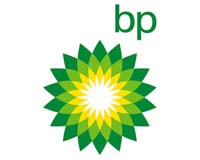 |
London (AFP) June 6, 2010 The problems British oil giant BP faces in controlling a massive oil spill in the Gulf of Mexico highlight the dangers of working in such deep waters which the industry will have to come to terms with. "What is taking place is an issue which will impact the global oil and gas industry and will necessarily have a very broad impact not only in the United States but around the world," BP chief executive Tony Hayward warned Friday. BP's costs in combatting the worst environmental disaster in US history have already run up to around one billion dollars and could go many times higher, prompting ratings agencies to downgrade the company's prospects. The wider fallout could see higher industry costs for oil, with prices for the consumer rising as a result. "Events in the Gulf of Mexico have demonstrated that drilling for oil in water depths of one mile (1.6 kilometres) ... is rather like putting a man on the moon," said David Hufton of PVM. "The technology to find the oil at such depths ... exists but the technology to cope with a disaster at such (depths) is lacking," Hufton added. For the oil industry, one immediate impact has been Washington's decision to ban any new drilling in the Gulf of Mexico for six months, and the delay in several projects off Alaska. In themselves, such moves should not be so important but they raise new uncertainties for the business, complicating planning for what can be hugely costly and difficult projects. "The ultimate outcome, we believe, will be slower development of deep water prospects and higher costs, supporting higher oil prices in the longer term," said Helen Henton of Standard Chartered Bank. "There is now considerable uncertainty over the future of deep water exploration, both in the US and elsewhere ... more rigorous enforcement of safety and environmental standards will raise the operating and insurance costs," Henton said. The Gulf of Mexico accounts for 19 percent of US oil reserves, of which most lie in deep water, and contributes 29 percent of US national oil production, she added. What has happened there may complicate exploitation of the vast reserves put at 50 billion barrels of oil off the cost of Brazil in water depths up to seven kilometres, a huge technical challenge. "Much of our future supplies were supposed to come from deep water drilling," said Hufton of PVM. "The environmental risks are now all too apparent. Perhaps the US public will accept that it is worth paying much higher prices to have the risks removed elsewhere," he added. The shift offshore and then into ever deeper waters is seen by many as essential to make up for falling production on land, with the major oil companies struggling to maintain and increase their reserves. "The world's demand for energy is continuing to grow and so is that in the United States," Hayward said. "The world needs the contribution of oil from the deep water and America can benefit hugely from the resources of the Gulf of Mexico but we need to prevent anything like this spill from ever happening again anywhere in the world. "
Share This Article With Planet Earth
Related Links Powering The World in the 21st Century at Energy-Daily.com
 Obama fires warning over BP share dividend
Obama fires warning over BP share dividendKenner, Louisiana (AFP) June 4, 2010 President Barack Obama fired a seething warning to BP Friday, warning the oil giant must not go cheap on Gulf of Mexico disaster victims if it pays billions of dollars in share dividends. Obama, who has been criticized for not showing enough emotion over the worst environmental disaster in US history, showed flashes of obvious anger as he hammered BP, which operated the Deepwater Horizon rig ... read more |
|
| The content herein, unless otherwise known to be public domain, are Copyright 1995-2010 - SpaceDaily. AFP and UPI Wire Stories are copyright Agence France-Presse and United Press International. ESA Portal Reports are copyright European Space Agency. All NASA sourced material is public domain. Additional copyrights may apply in whole or part to other bona fide parties. Advertising does not imply endorsement,agreement or approval of any opinions, statements or information provided by SpaceDaily on any Web page published or hosted by SpaceDaily. Privacy Statement |